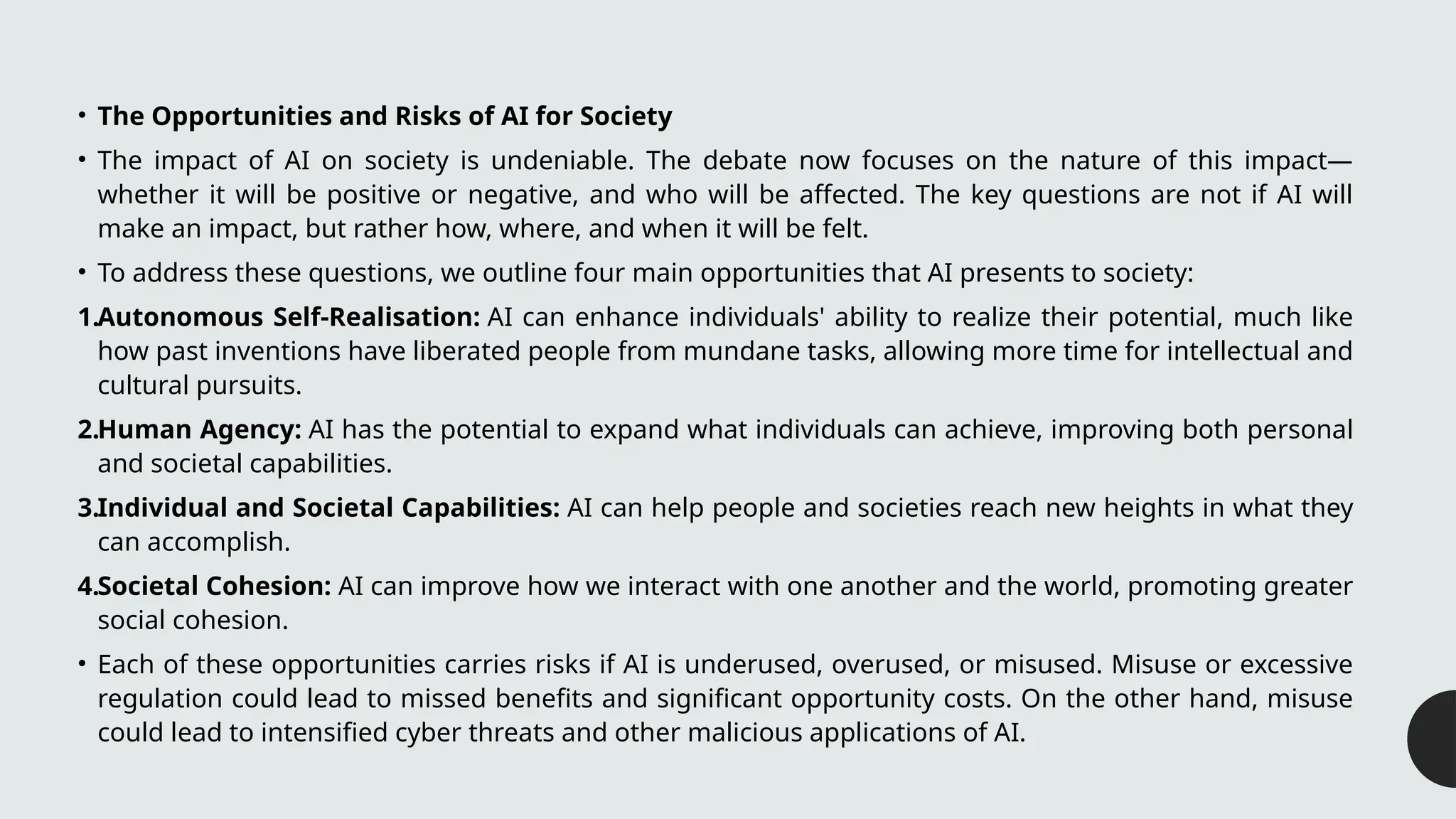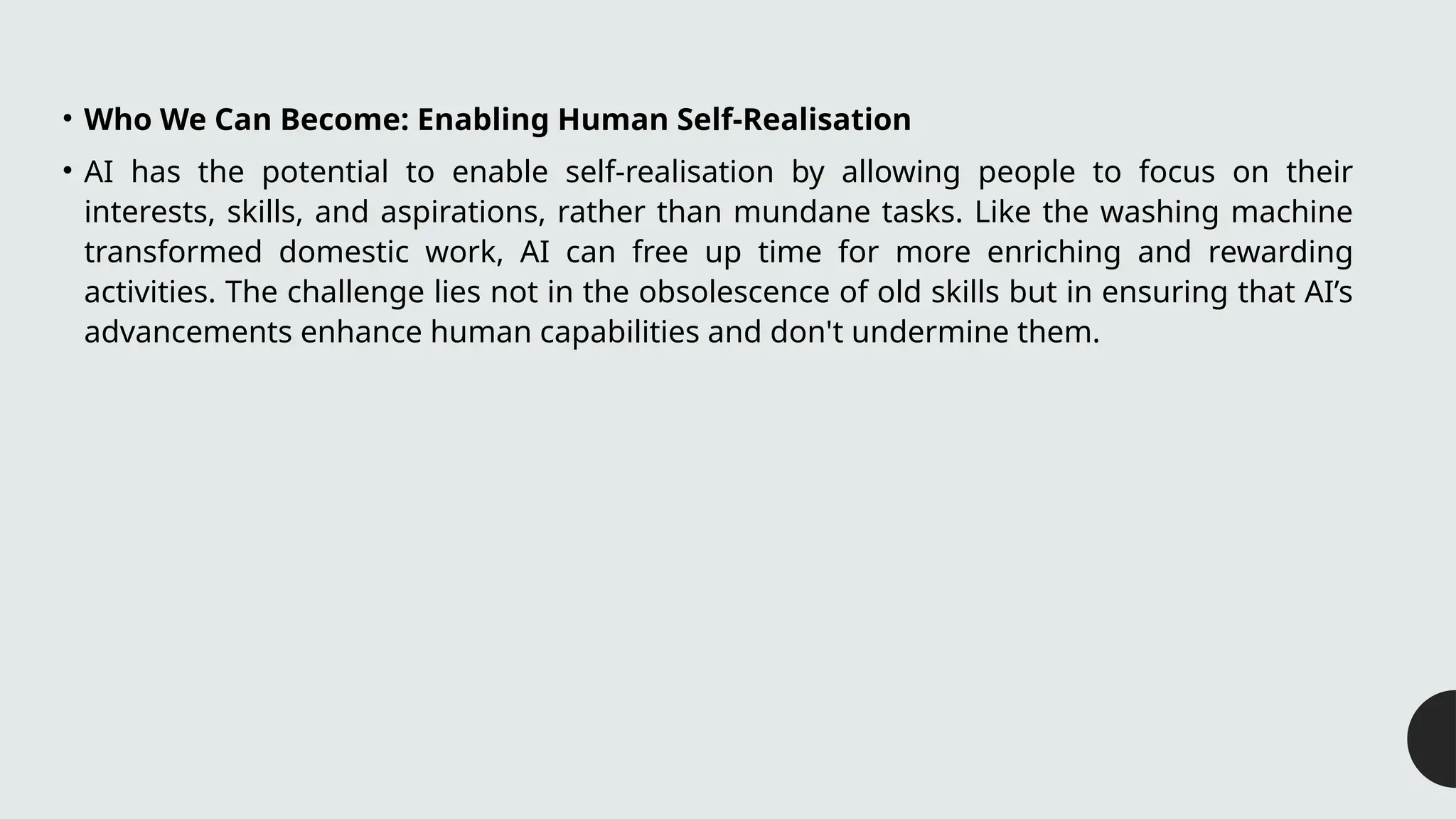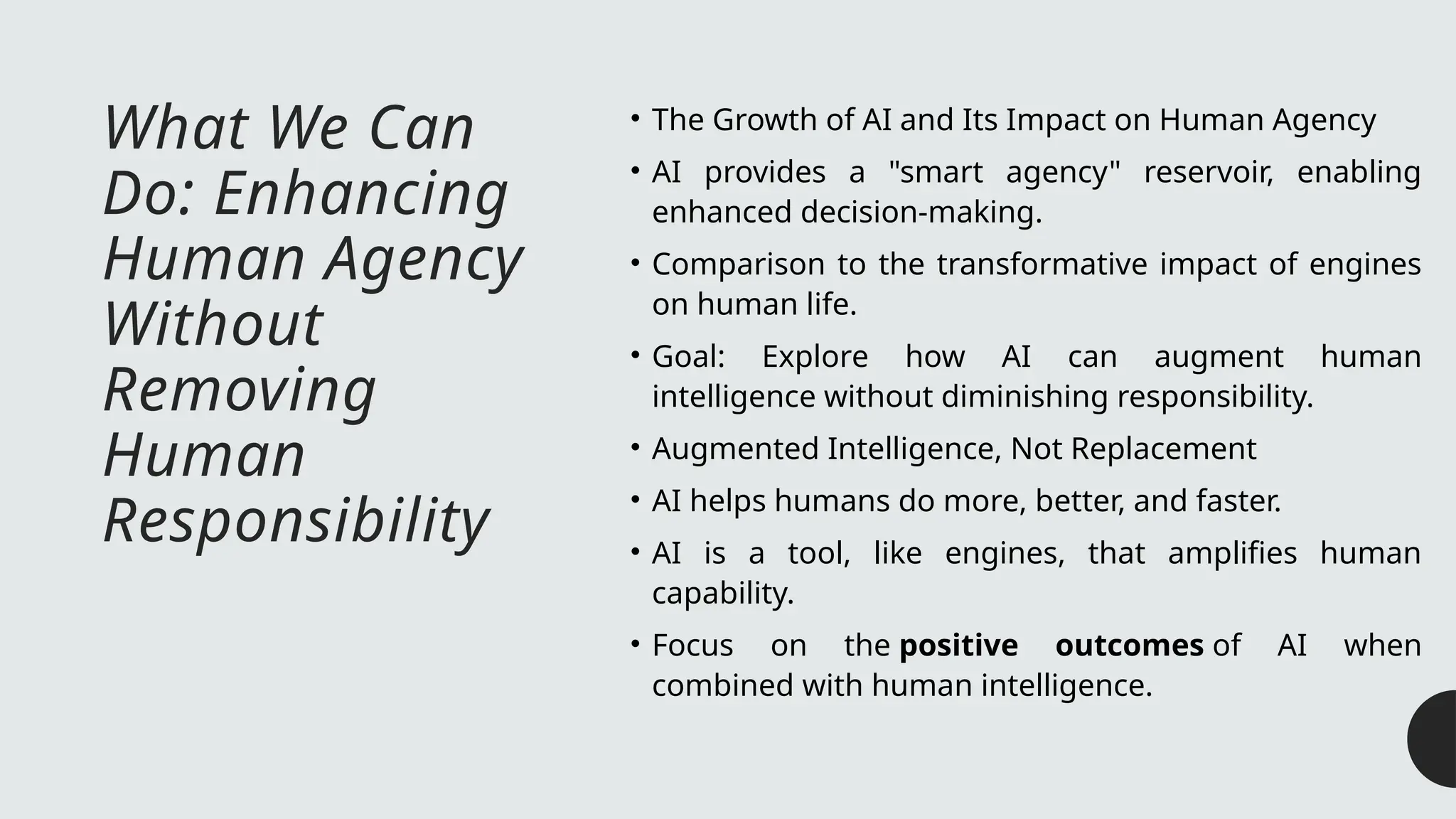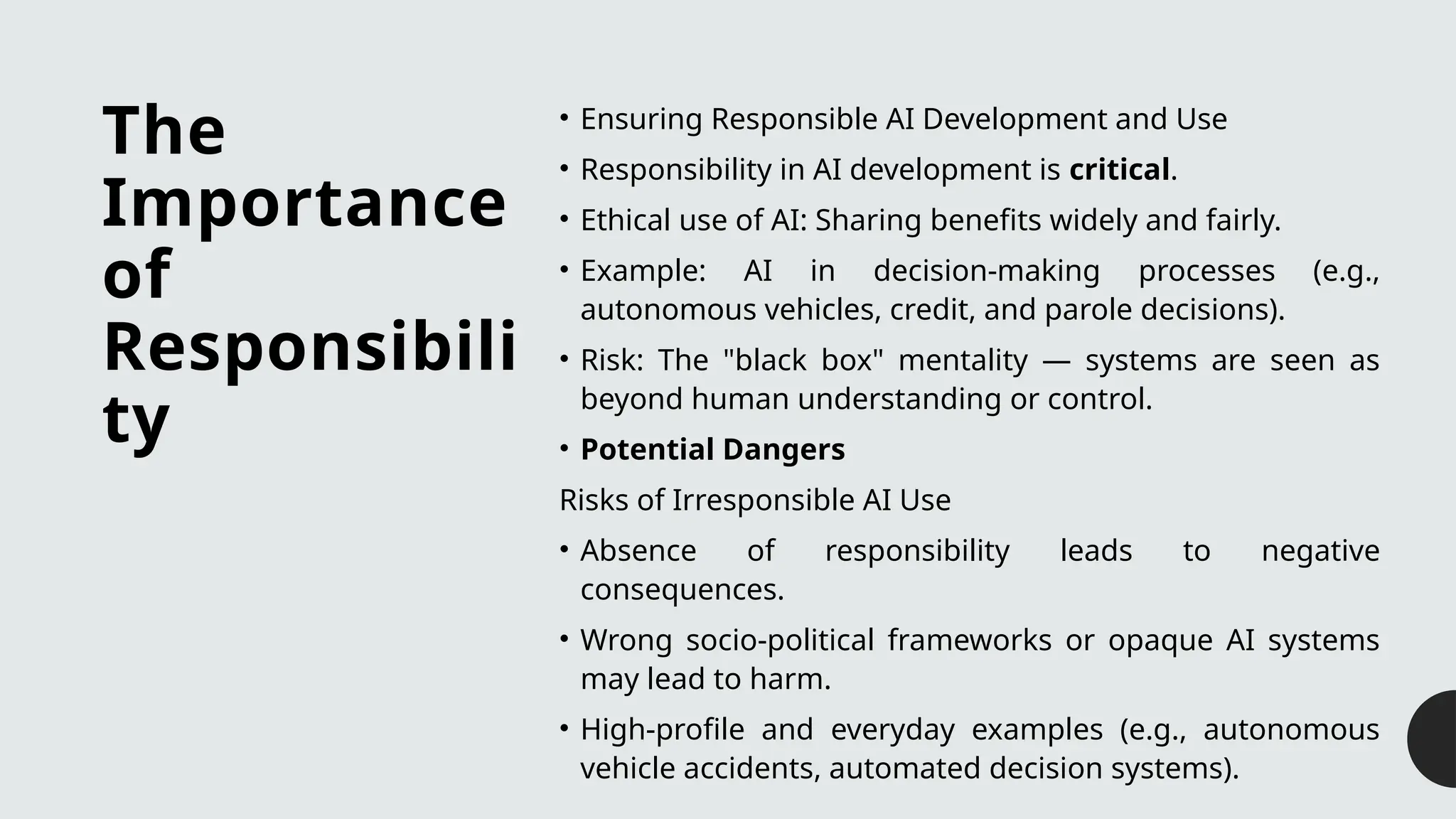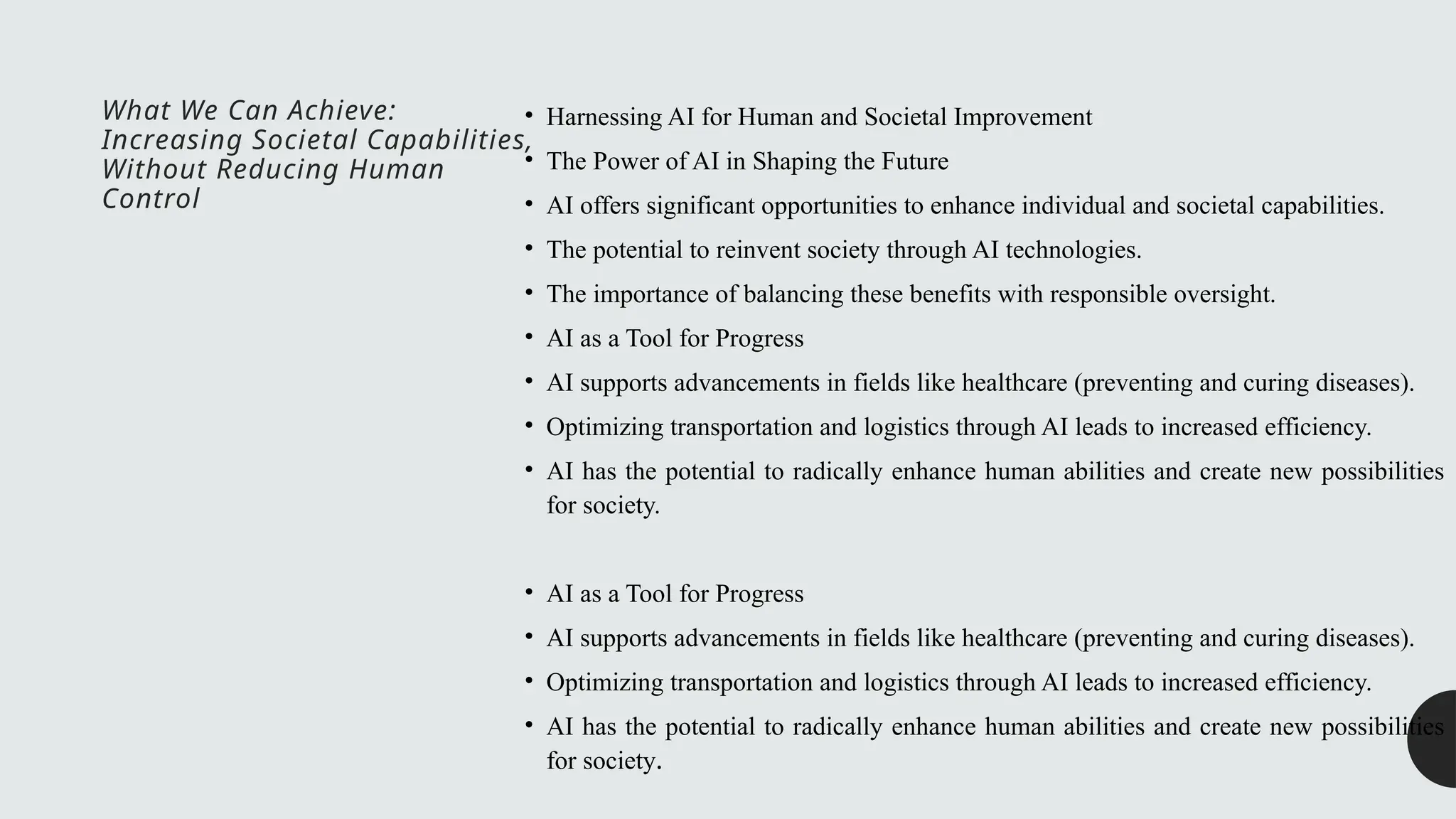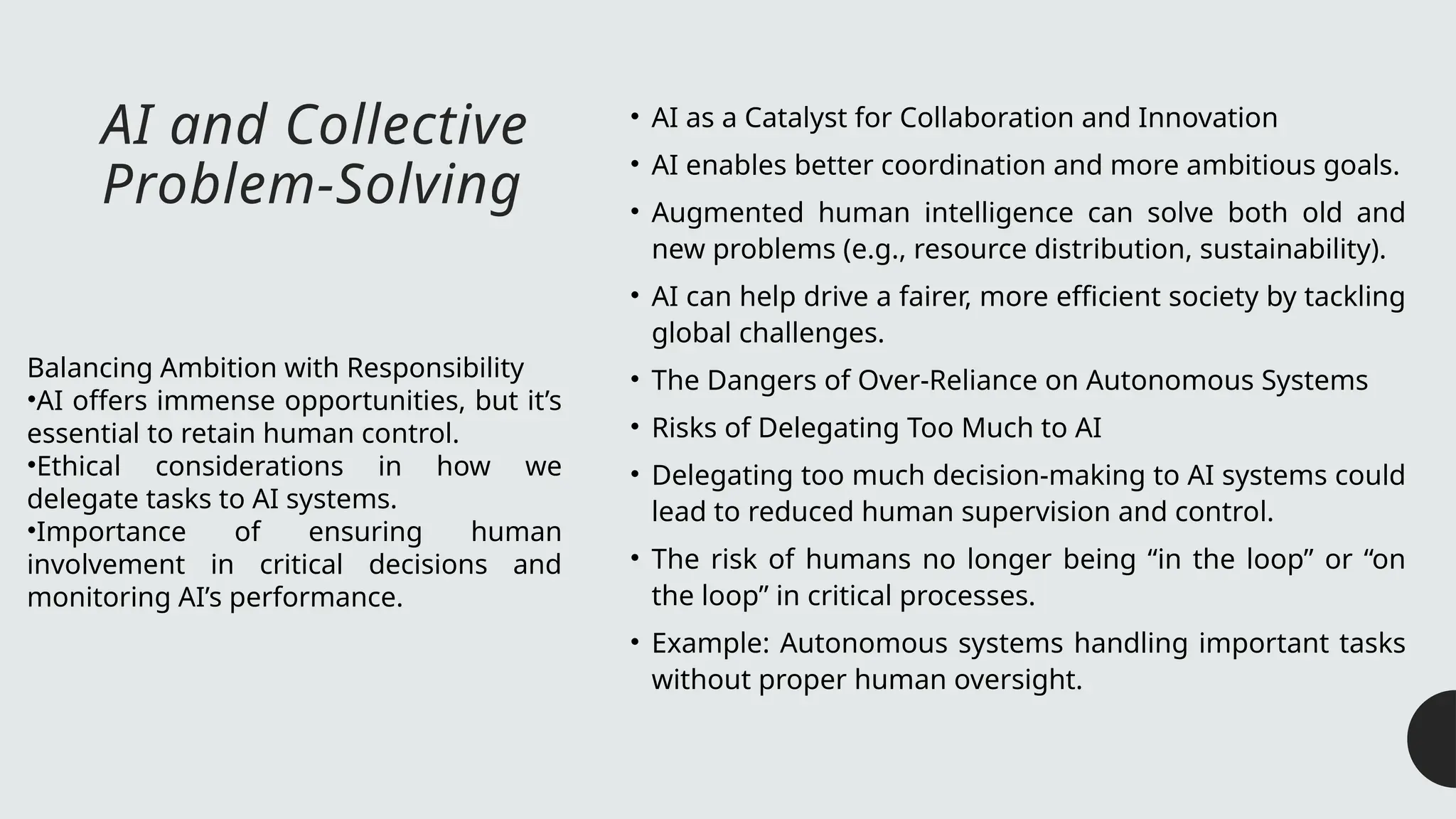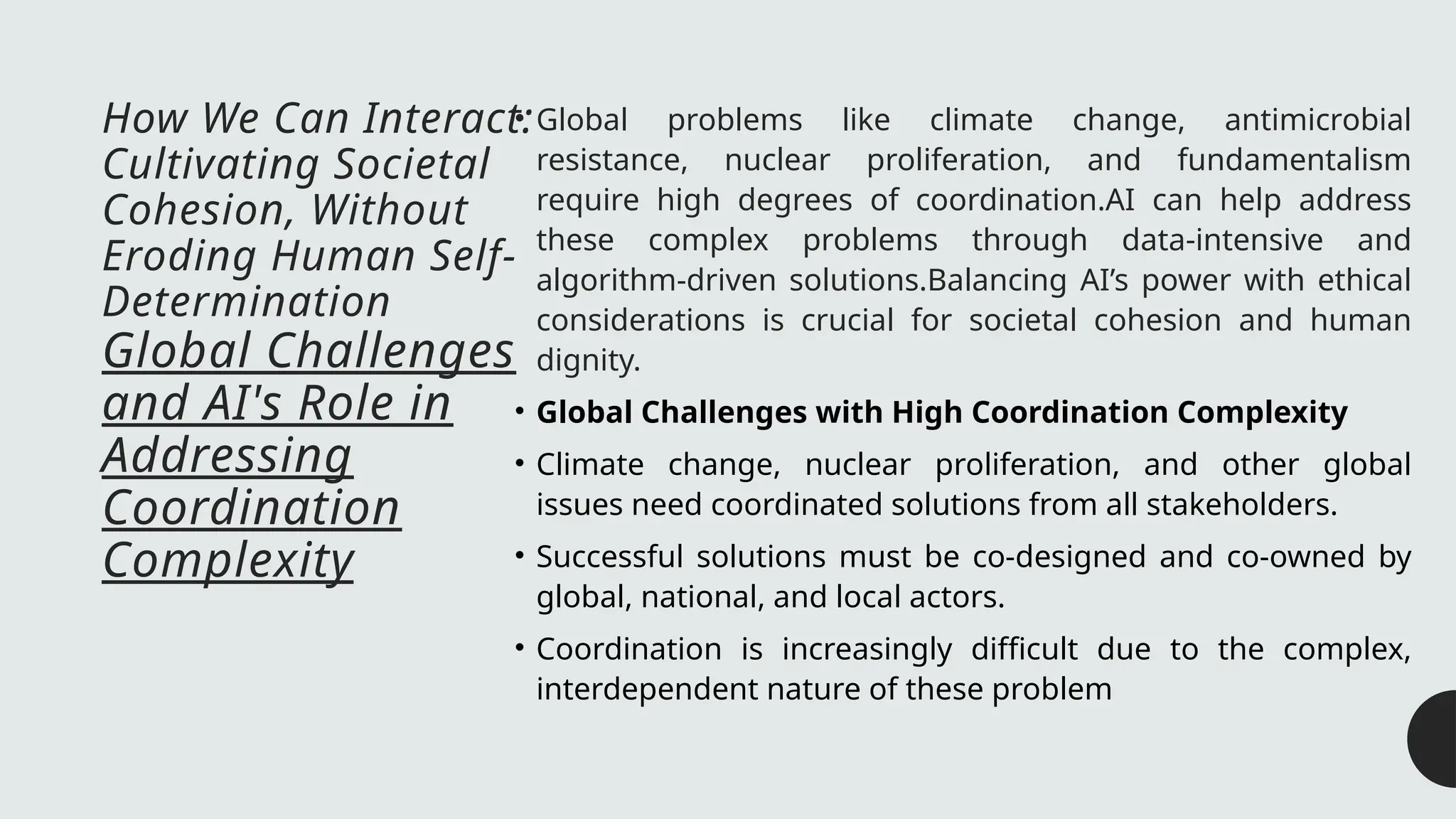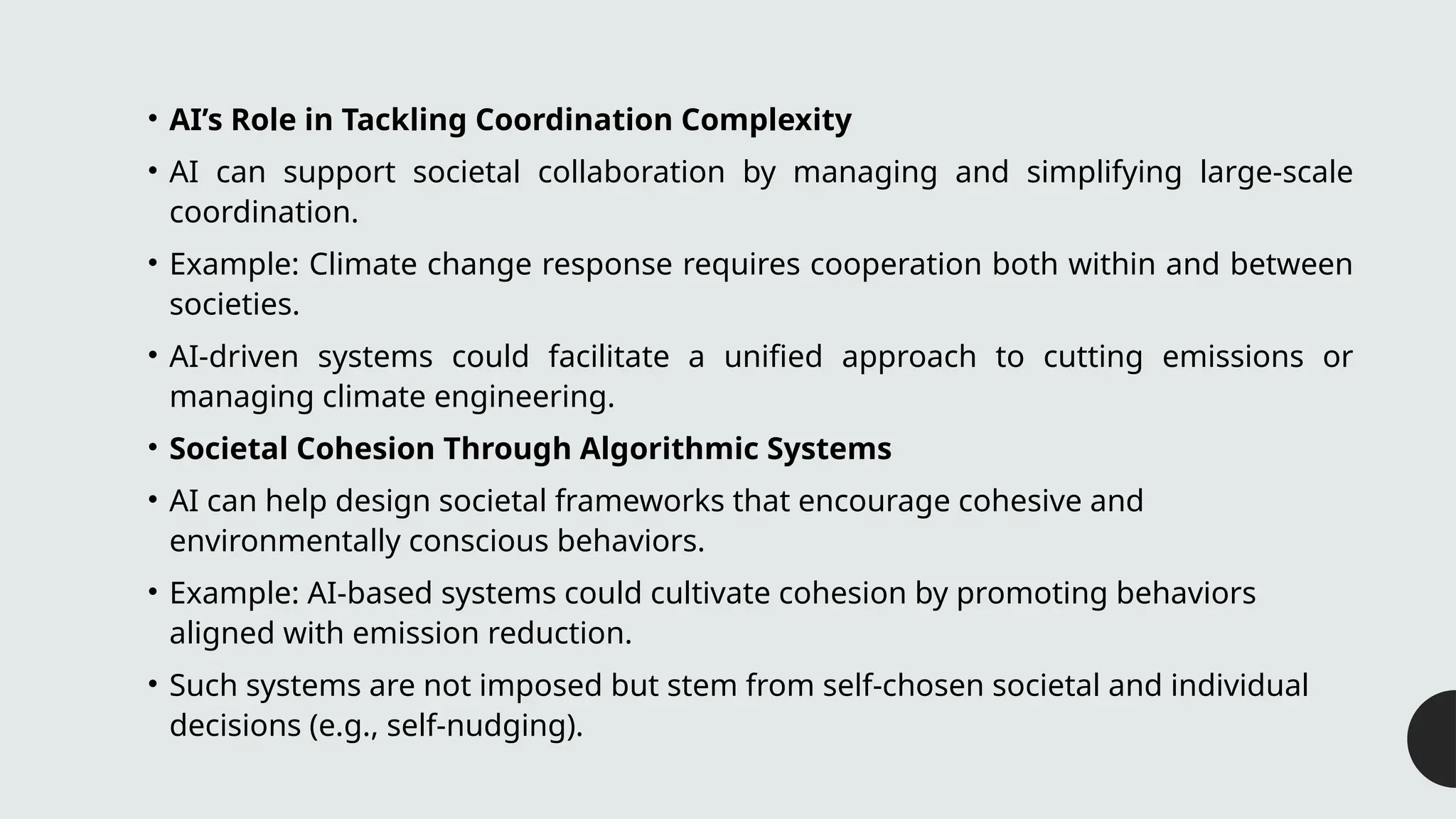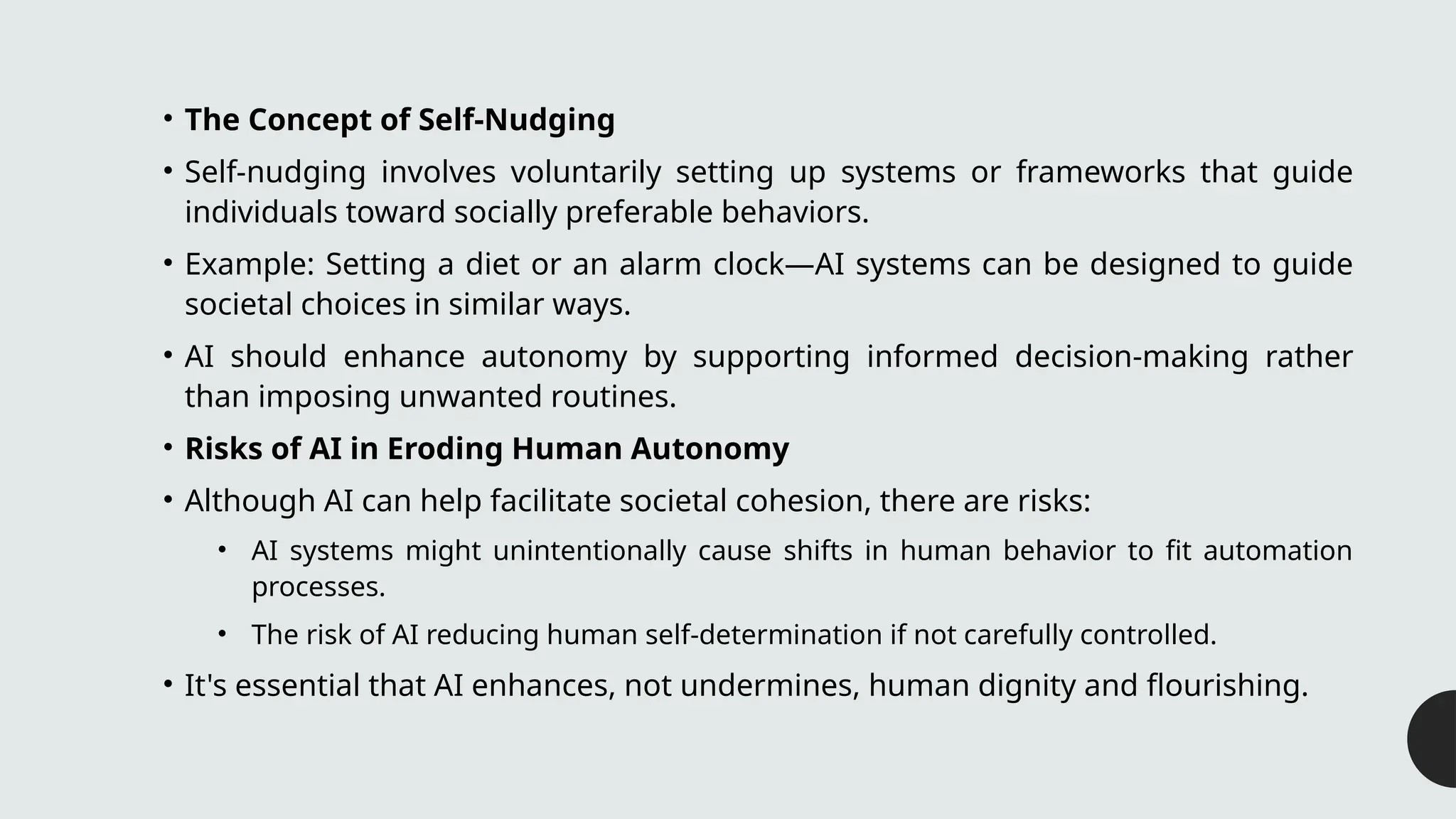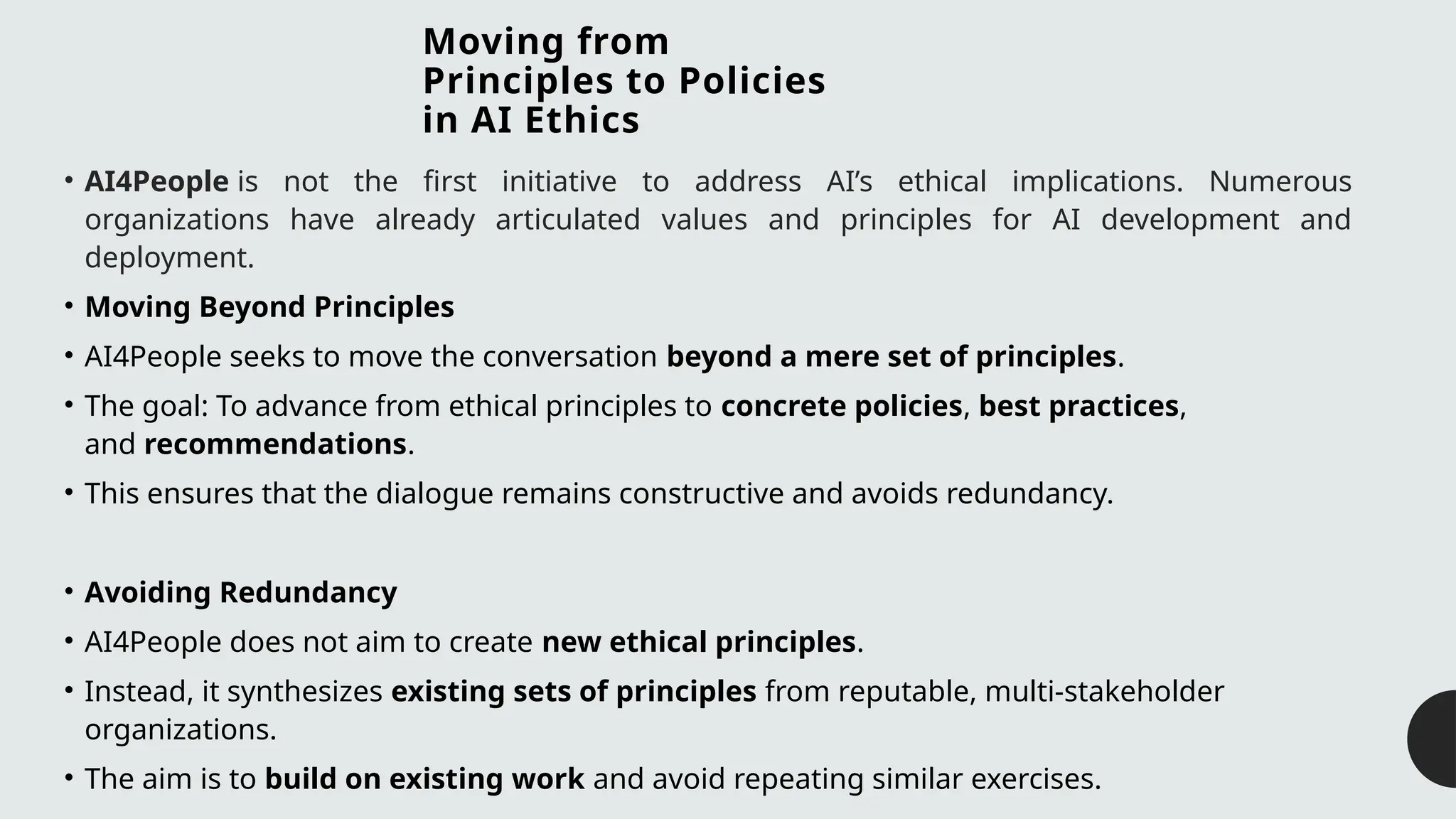The document discusses the dual impact of artificial intelligence (AI) on society, highlighting both opportunities for human enhancement and the associated risks of misuse or overregulation. It emphasizes AI's potential to promote individual self-realization, societal cohesion, and collaboration while stressing the need for ethical AI development to prevent erosion of human autonomy and agency. To maximize the benefits of AI, the document advocates for moving from principles to actionable policies that encourage responsible use and oversight of AI technologies.

